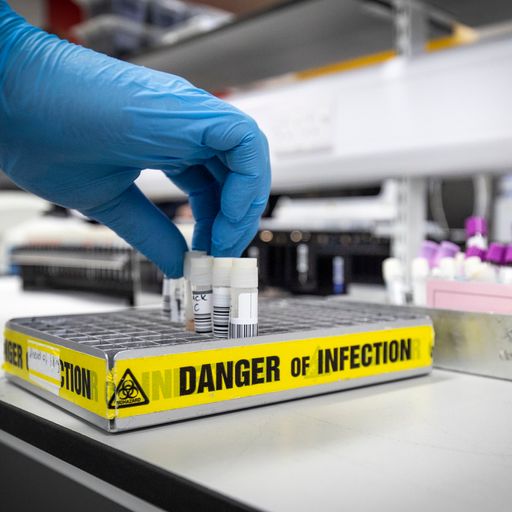Coronavirus: How do you stop COVID-19 in a country where people have other problems?
How can South Africa convince some of its poorest people that a virus is more of a threat than the poverty they live in every day?
Friday 27 March 2020 09:06, UK
Several hours before the nation commenced a draconian 21-day lockdown, South Africa's president, Cyril Ramaphosa, put on an army uniform and gave a speech which captured the historic and desperate nature of the order he has given.
Speaking to soldiers at a base in Soweto, near Johannesburg, he told them: "This is your most important mission.
"Many of our people are fearful, they are doubtful and concerned... your mission is to restore the lives of South Africans."
Troops have not been deployed on the streets of South Africa since the apartheid era but the president has called on them to help police a highly restrictive shutdown.
All but essential workers must stay at home while the government has shut restaurants, pubs, bars and gyms. The sale of alcohol and cigarettes is banned and the colourful drivers of the country's taxi-vans can only operate during restricted periods in the morning and evening.
If anyone doubted the resolve of Mr Ramaphosa's cabinet, the police minister Bheki Cele doubled down when he threatened anyone in breach of the rules with six months in jail. It is a punishment faced by everyone - even dog walkers.
"So there is no need to move around," he said.
"There was a little bit of a story earlier that you can walk your dog, [but] there shall be no dogs that will be walked... if you really want to walk your dog [do it] around your house."
:: Listen to the Daily podcast on , , , .
Why has the South African government responded to the coronavirus with such vigour? The answer lies in the swift increase in the number of infected people over the last six days.
Last Friday, the authorities said 200 people had contracted the disease but that total now stands at well over 900. Statisticians from the University of Witwatersrand estimate that one million people could be infected within 40 days if a small number in one locality catch it.
While that may seem incredible, there are millions of people in this country who reside and survive in impoverished townships and settlements with few taps, toilets or sewage services. Overcrowding is a basic fact of life. Many share shacks with 10 or more people.
The government knows that if COVID-19 takes root in such communities, it will quickly spread, overwhelming the country's crippled healthcare system.
Yet, social isolation and self-distancing are luxuries that the residents of townships can barely afford. Inhabitants need to work - or collect tips and commissions on streets and car parks - or they are unlikely to eat. It is another fact of life in South Africa.
While the government executed its nationwide lockdown, inhabitants of impoverished settlements in the city of Port Elizabeth blocked roads and burnt buses to protest poor services and non-existent electricity. Few seemed to understand why President Ramaphosa was bothered about a virus.
"We say to the government: our living conditions deserve the same attention as the coronavirus," said community leader, Sipho Ntsondwa.
The challenges facing those who run this country are enormous and, as the lockdown takes effect, the coronavirus only represents one of them.







